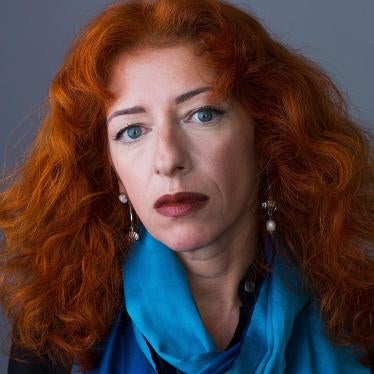The Internet has been long described as an “island of freedom” in Russia’s dramatically shrinking space for free speech – the cyber inheritor of the kitchen, which was the only (relatively) safe place for debate in the Soviet era.
But, alarmed by this free-ranging expression online, Russia’s government has taken steps in recent years to “remedy” the situation. In December 2013, President Putin signed a law criminalizing public calls to separatism. Just six months later the law was amended to toughen the criminal sanctions, particularly for online speech.
The result was you can face up to five years behind bars for speaking up online, including on social networks, if the authorities deem your remarks to undermine Russia’s territorial integrity. This is not an abstract sword of Damocles hanging over the heads of some “separatists.” The law has already been invoked on numerous occasions, notably against those who expressed discontent with Russia’s occupation of Crimea and its support for the rebels in eastern Ukraine.
This week, a court in Tatarstan sentenced a local activist, Rafis Kashapov, to three years in prison for allegedly publishing comments undermining Russia’s territorial integrity and inciting hostility towards the Russian people. The allegations stem from several posts he published on his page in VKontakte – the most popular social network among Internet users from post-Soviet countries– including a piece titled “Crimea and Russia Will be Free from the Occupants!”
A Russian expert group well-known for its research on the government’s abuse of the country’s anti-extremism legislation analyzed the case and found that the texts said nothing that could qualify as “incitement to actions aimed violating Russia’s territorial integrity.” Amnesty International designated Kashapov a prisoner of conscience. Indeed, Kashapov was effectively convicted for exercising his right to free expression, which is a clear violation of international law.
Kashapov’s case is not unique, though he was the first to get sentenced under this criminal provision. In June, a Moscow-based consumer protection group, Public Control, became the target of a criminal investigation after publishing online a memo for tourists that called Crimea “occupied territory.” If prosecuted, the group’s leader is likely to face a jail sentence.
Russia’s stance on separatism is strikingly double-sided. The Kremlin does not seem to find any contradiction between providing assistance to “separatists” in neighboring countries, be that Ukraine with its war-torn Donbass, or Georgia with its breakaway provinces of Abkhazia and South Ossetia, while at the same time prosecuting its own nationals for alleged “separatist” calls. As regards Russia’s approach to “freedom of expression,” it is very straightforward and very unfortunate – the government is increasingly cracking down on free speech, paying no heed to its international obligations.








